EU council extends sanctions on Iran over support for Russia, proxy wars
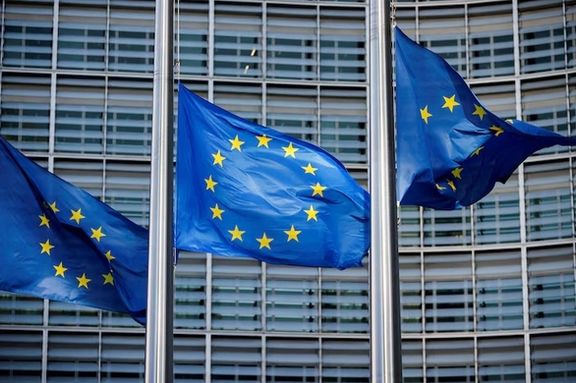
The European Council has extended its sanctions against Iran for another year, citing Tehran's military action both regionally and globally.

The European Council has extended its sanctions against Iran for another year, citing Tehran's military action both regionally and globally.
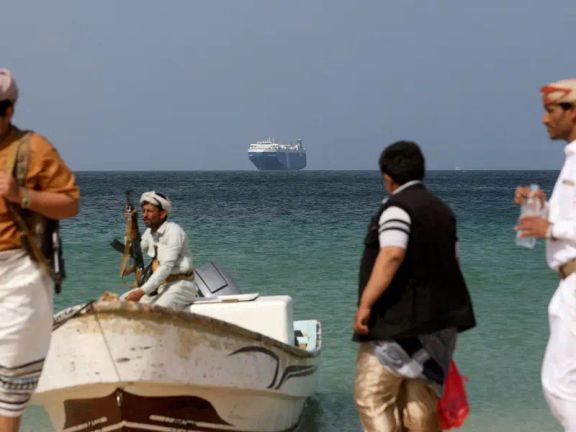
A vessel smuggling foreign experts and military materials for missile production destined for Iran-backed Houthis of Yemen has gone missing in the Red Sea, media reports say.
The vessel, now missing for three days, has triggered a patrol and reconnaissance mission by the Houthis, as reported by UAE-based Al-Ain news website.
"Iranian experts and senior Houthi security leaders participated in a special meeting held in Sanaa to review and discuss a report on the large boat that was lost in the Red Sea," the report said, citing informed sources.
For years, Iran has been accused of supplying the Houthis with weapons and expertise for developing long-range missiles and drones. The shipments, often disguised as commercial vessels, have sometimes been intercepted by the US Navy and other international forces.
Security sources in Yemen revealed to Al-Ain that the Houthi militias lost contact with the large transport boat that was on a smuggling mission via a regular sea route from the Horn of Africa countries to the coasts of the governorate overlooking the Red Sea.
The news outlet said Yemeni security sources confirmed the ship was expected to arrive in Yemen on Friday but disappeared on Saturday. The Houthis, lacking a robust navy, have mobilized small boats and drones for the search, but their fishing boats lack the necessary technology for such operations. No distress calls have been detected.
Speculation is rife that the ship may have been targeted by the US-backed Prosperity Guardian mission, aimed at protecting Red Sea shipping from Houthi attacks amid the blockade launched by the terror group since November.
Claiming to be in solidarity with Iran-backed Hamas in Gaza, amid its war with Israel, the Houthis began a maritime blockade of the critical Red Sea corridor, targeting commercial shipping.
The Houthis fear the vessel could have been intercepted by US or European navies, given the intensified crackdown on Iranian arms shipments.
In a related development, US Central Command announced on Sunday that its forces had destroyed two Iranian-backed Houthi drones and one kamikaze boat in the Red Sea.
The Houthis started targeting maritime commercial traffic in mid-November following a call by Iran’s Supreme Leader Ali Khamenei for Muslim countries to blockade Israel. Initially focused on the Red Sea, the attacks have now extended to other critical waterways, including the Indian Ocean, with international shipping affected and dozens of seamen taken hostage.
A US-led coalition of over 20 nations has formed to combat the threat to global trade and freedom of movement.
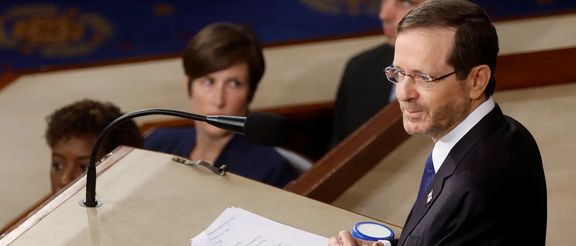
Israeli President Isaac Herzog branded Iran an "empire of evil" during a meeting with British Foreign Secretary David Lammy in Jerusalem on Monday as the war in Gaza continues.
Herzog labeled Iran as "an empire of evil that wants to undermine the stability of the world and is rushing to the bomb [and] undermining international trade", referring to the Yemeni Houthis' blockade of the Red Sea and Tehran's ongoing nuclear program.
Israel is currently at war with Iran-backed Hamas in Gaza which invaded Israel on October 7, killing 1,200 mostly civilians and taking another 250 hostage. The invasion was met by solidarity attacks on Israel's northern border by Iran's Hezbollah in Lebanon, backing Hamas.
Subsequently, Iran's Houthis in Yemen launched a maritime blockade of the Red Sea, causing at least half of the commercial vessels on the key trade route to change course to longer and more expensive routes.
Since October 7, attacks against Israel have also come from Iran's militias in Syria and Iraq, and even Iran itself. In April, Tehran sent a barrage of hundreds of drones, missiles and rockets towards Israel in an unprecedented attack.
Israel and a US-led coalition which included the UK, intercepted most of the projectiles.
Highlighting the regional threat, Herzog stated that Iran is actively "trying to surround Israel by its proxies." He reiterated Israel's commitment to peace, stating, “We are a nation seeking peace, and I believe that we must find peace with our neighbors.”
The President said Israel is “working tirelessly” to secure the return of the hostages, which include women and children, expressing hope for a deal soon. “I sincerely hope that there will be a hostage deal soon. It is a very important step,” Herzog said. In return for the hostages, Hamas is demanding a full ceasefire and the release of hundreds of Palestinians in Israeli prisons, most of whom are held on terror charges.
Lammy, adorned with a yellow ribbon symbolizing support for the hostages' return, echoed the sentiment. “I hope that we see a hostage deal emerge in the coming days, and I am using all diplomatic efforts,” he remarked, noting his recent efforts with the G7 nations and US Secretary of State Antony Blinken.
Egypt, Qatar and the US are among those working for a ceasefire deal between the two warring sides as the humanitarian disaster in Gaza deepens. Since October 7, almost 40,000 people have died in Gaza, according to Hamas. At least 15,000 of those are Hamas militants, says Israel.
Iran has long been a supporter of Hamas, which is currently engaged in its longest war with Israel since it took over Gaza in a violent coup in 2007.
Tehran has been providing the militant group with financial aid, weaponry, and training, including the supply of advanced rockets, military equipment, and technical expertise to enhance Hamas's capabilities in its conflict with its archenemy.
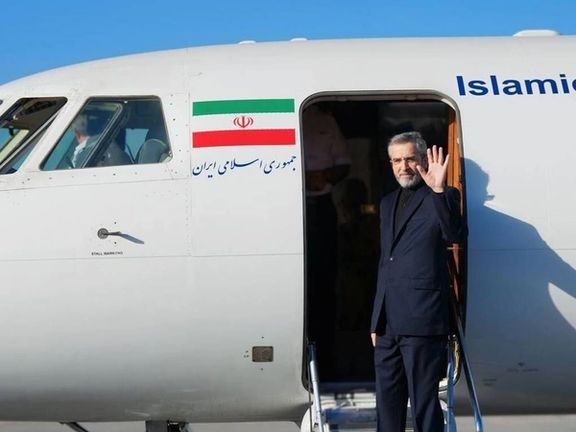
Iran’s Acting Minister of Foreign Affairs led a delegation to New York on Monday to participate in two UN Security Council meetings focusing on the escalating situation in the Middle East.
The meetings are chaired by Russia’s foreign minister under the rotating presidency of the UN Security Council held by Vassily A. Nebenzia. The sessions aim to discuss the future global security architecture and the United Nations' role in establishing global peace.
However, the participation of Iran in these discussions has led to backlash amid its proxy aggression across the Middle East, nuclear ambitions, and human rights abuses at home.
Iran's proxies in Gaza, Lebanon, Syria, Yemen and Iraq are all currently part of a circle attacking both Israel and US targets in the Middle East amid the war in Gaza. Yemen's Houthis are also currently blockading the Red Sea region, targeting commercial shipping.
The open debate on the Middle East, scheduled for July 17, will feature Tor Wennesland, Special Coordinator for the Middle East Peace Process, and will spotlight the ongoing situation in Palestine.
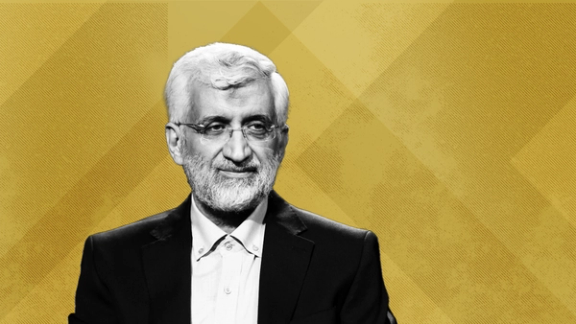
In the aftermath of Masoud Pezeshkian’s victory in the Iranian presidential election, talk of a shadow government by his hardliner rival Saeed Jalili has sparked intense debate.
Critics question the legitimacy and funding of Jalili’s self-styled oversight body, challenging its alignment with the late president Ebrahim Raisi’s administration and highlighting the broader political rift within the country.
What constitutes a shadow government?
A select number of countries, including Canada, Australia, and the United Kingdom, implement the shadow government system. According to the British Parliament, each shadow cabinet member is tasked with leading a specific policy area and challenging their government counterpart. This structure allows the official opposition to position itself as an alternative government-in-waiting.
What, then, would be considered a shadow government in Iran?
In Iran, a shadow government is not a legal or traditional concept.
Jalili uses the term, but his interpretation deviates from the international concept. First, Jalili does not represent an opposition party, as he is not affiliated with any. The Paydari Party endorses him, although he is not a member himself. Second, his interpretation extends beyond the government to encompass the entire state apparatus.
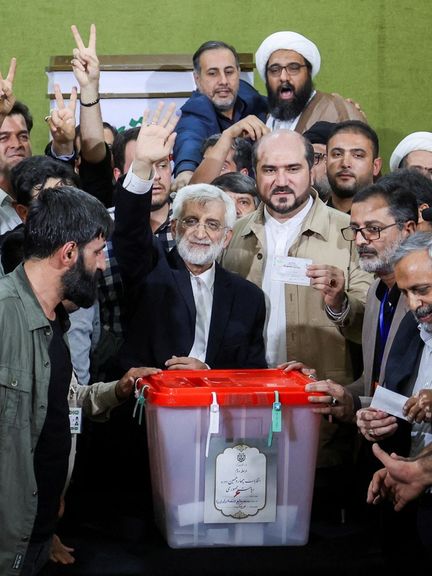
How does Jalili conceptualize a shadow government?
Jalili first broached the concept of forming a shadow government following the establishment of Hassan Rouhani's first administration in 2013.
According to his official website, his shadow government comprises a series of trips, meetings, and working groups aimed at "formulating step-by-step actions on fundamental economic, managerial, political, and cultural issues."
Jalili articulated the notion as “a discourse and a movement,” asserting that “anyone in society who feels a responsibility for the country's trajectory, the revolution, and various issues should meticulously monitor developments to the best of their ability and endeavor to exert a positive influence.”

He also stressed that it is not limited to the executive branch but includes the legislature, and judiciary.
During his presidential campaign in 2024, Jalili revealed the extensive scale of his shadow government, which he described as comprising “over a thousand managers and experts dedicated to meticulously monitoring national issues and formulating innovative solutions.”
He further noted that, under this initiative, he has personally undertaken more than 140 trips to various regions nationwide.
What criticisms are levied against Jalili's shadow government?
Interestingly, Supreme Leader Ali Khamenei was among the first to oppose Jalili's efforts.
“The relevant officials should undertake the work themselves. Parallel work alongside the government apparatus is not successful. This has been my definitive experience over the years,” Khamenei said in 2018.
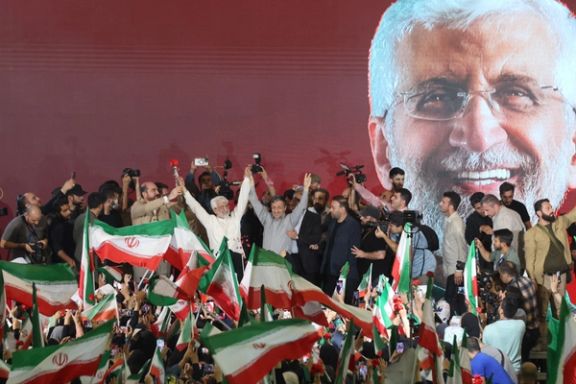
When Jalili initially introduced the concept during Rouhani's tenure, critics asserted that his primary objective was to "obstruct" the nuclear negotiations conducted under Rouhani's administration. A fervent critic of Tehran's 2015 nuclear agreement with major powers, Jalili had previously served as Iran's chief nuclear negotiator from 2007 to 2012. During his tenure, Tehran adopted a defiant and unyielding stance in negotiations with global powers over its uranium enrichment program. This period saw the imposition of three UN Security Council resolutions on Iran, with multiple attempts to resolve the conflict proving unsuccessful.
After Rouhani's tenure ended and hardliner Ebrahim Raisi assumed office, Jalili's shadow government made no significant public statements. However, during the recent presidential elections, as Jalili touted "plans derived from the experience of the shadow government," other candidates began to criticize him.
Among the critics was Mostafa Pourmohammadi, a presidential candidate and former justice minister. He criticized Jalili by asserting that the activities of a shadow government do not constitute genuine action, emphasizing that only those initiatives conducted transparently and openly "in the light" genuinely matter, as opposed to those carried out "in the shadow."
Pezeshkian also emphasized that a clandestine shadow government is unlikely to significantly improve the country's citizens' lives. He also raised concerns regarding the funding for Jalili’s shadow cabinet.
"He should clarify the sources of the funds that enabled these experts to collaborate with him," Pezeshkian stated during a presidential debate for the runoff election. "Additionally, he should disclose the identities of these individuals compensated for their research efforts."
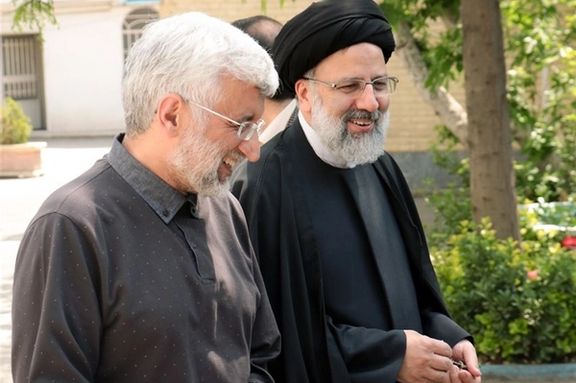
Following Pezeshkian's victory, numerous reformist media outlets and politicians raised concerns about the origins of the funds supporting Jalili's program. After Pezeshkian's election win, tensions escalated when Jalili met with him and expressed a willingness to collaborate with the new administration, provided it adhered to "revolutionary principles." Jalili also sternly warned that any deviations or errors would prompt decisive and forceful intervention on his part.
Mahmoud Vaezi, the former chief of staff to ex-president Rouhani, stated that it is “dangerous” for a failed candidate to claim he wants to form a shadow government.
“The question is, what authority does Jalili have to declare himself an arbiter of governance, saying he will intervene if Pezeshkian does not perform correctly? Many of Jalili's preferred policies face serious criticism from officials who do not endorse his proposed model,” Vaezi said on Saturday.
A reformist political activist, Ali Bagheri, also said that a shadow government requires transparency.
“What is the identity of this entity engaged in critiquing and reviewing the government while offering reform proposals? What is its legal status? From where does it derive its wealth and fund its operations?” Bagheri said on Saturday.
“It is a fundamental principle that anyone or any entity aspiring to position itself as a shadow government must first fully disclose its identity,” he added.
Former MP Esmail Gerami Moghadam remarked that the alignment of Jalili's shadow government with the late President Raisi's administration rendered its formation meaningless, given their shared hardline stance. He elaborated, "Fundamentally, a shadow government is intended for political parties. It is the parties that establish shadow governments." Moghadam observed that Jalili neither possesses nor plans to establish a party, prompting the inquiry, "Who has commissioned him to form a shadow government? Is it financed from his funds?"
One of the major criticisms came from Heshmatollah Falahatpisheh, former head of the Iranian Parliament's Foreign Policy Committee. He remarked, “The only things we have seen from the shadow government so far are obstructions in political and domestic issues, imposing significant costs on the country regarding the International Financial Task Force (FATF).”
The FATF is an international financial watchdog that spearheads efforts to combat money laundering, terrorist financing, and the financing of weapons proliferation. In recent years, Iran has been placed on the financial watchdog’s “blacklist” due to its failure to adhere to transparency standards and international conventions against money laundering and terrorism financing.
Saeed Jalili's resistance to adopting the Financial Action Task Force (FATF) recommendations had emerged as a pivotal topic in the sudden presidential election debates in Iran.
For more than a decade, the debate over FATF compliance, intertwined with the persistent challenge of international sanctions, has dominated Iran's foreign relations discourse.
During the presidential elections, Pourmohammadi disclosed that during a session at the Supreme National Security Council, Jalili admitted they were not adhering to FATF regulations to disrupt Rouhani's government.

Falahatpisheh criticized the shadow government, stating that if its outcome was the forfeiture of the opportunity to revive the JCPOA, entangling Iran in the Ukraine conflict, and placing Iran on the FATF list, then it has not served the nation. "In my view, it has never prioritized the interests of the Iranian people," he remarked. He further noted that forming a shadow government while an official administration is in office is futile and merely reflects the ambitions of certain individuals.
“A shadow government is for parliamentary systems, where a minority party forms a shadow cabinet to oversee the majority government, ready to take over if the majority government falls, similar to the Labour Party replacing the Conservative Party in the UK,” he added.
How has Jalili addressed his critics?
Jalili's response to his critics can be best encapsulated in his remarks on Saturday, where he dismissed the criticisms as unimportant.
He emphasized the importance of focusing on substantial tasks rather than minor issues. "They accuse and undermine us, but as much as possible, keep your eyes on the broader horizon," he stated. "Some may request responses to these minor issues; however, we don't have time for that. We have so much work to do, and if we focus on the big tasks, many of these issues will resolve themselves."
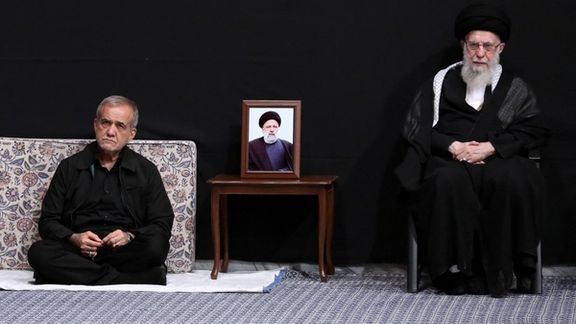
Supporters of Iran's President-Elect Masoud Pezeshkian, with good intentions, have recently caused trouble for him, prompting him to publicly affirm that he remains the same person and that his election has not changed his self-perception.
Some of his supporters have been attempting to elevate his status above his predecessors by highlighting that he is the first and only president in the world who is both a medical doctor and a fully accredited university professor.
Iranian fact checkers at home and around the world maintained that this a myth. Foreign-based fact-checking group FactNameh refuted the claim as a flat lie, adding that both at the present time and in the past many heads of state have or had equal or higher academic credentials than Pezeshkian.
According to FactNameh, "These include former German Chancellor Angela Merkel who had a Ph.D. in Physics, former Afghan President Mohammad Ashraf Ghani Ahmadzai who was a doctor of cultural anthropology, Cameroon's former Prime Minister Joseph Ngute who had a Ph.D. in Law, the Prime Minister of Congo Anatole Collinet Makosso who has a Ph.D. in law, former Albanian President Alfred Moisiuwho was a doctor of military sciences, and Jordanian Prime Minister Bishar Khasawneh who is a doctor of philosophy of law."
FactNameh added that many of those heads of state are perhaps much better educated than Pezeshkian with high recognitions as graduates of law, political scienceand economics.
Meanwhile, Iran's first president, Abolhassan Banisadr, held a doctorate in economics, and former president Mahmoud Ahmadinejad held a Ph.D. in transportation and traffic engineering.
At the same time, an initiative to introduce Pezeshkian as a deeply religious individual backfired as he went to see preacher Hossein Ansarian. Ansarian gave the president-elect his own black handkerchief and rosary. However, Pezeshkian's supporters were displeased that he visited Ansarian, one of the few clerics permitted to enter Khamenei's residence and recount the tragedy of Karbala to move the Supreme Leader to tears.
To add a dramatic flair to the session, Ansarian told Pezeshkian that he wanted the handkerchief to be buried with him when he dies, as he had shed many tears into it for the martyrdom of Imam Hussain, the third Imam of the Shiites.
In another dramatic show, some of Pezeshkian's supporters doctored a video of his arrival at Ansarian's mosque, creating a slow-motion version accompanied by epic music, making it appear as though he was performing an extraordinary act by visiting a mosque during the mourning month of Muharram. Social media users harshly criticized Pezeshkian for this utterly sensational yet otherwise banal video.
Iranian journalist Maryam Shokrani wrote in a tweet that it was ridiculous that some of Pezeshkian's supporters expected to behave like one of those traditional landlords who bossed citizens around. She reminded that in other countries, even the biggest officials are the people's servants, not the other war round.
Meanwhile, as Pezeshkian was caught offhand on live TV while a crowd chanted slogans in support of Green Movement leader Mir Hossein Mousavi, who has been under house arrest since 2011. The president-elect was suddenly speechless and finally he was saved by the state TV cutting off the sound, otherwise, whatever he said could turn out to be controversial or worse.
The new president seems to need some training on how to diplomatically handle such situations, as appearing in large crowds could expose him to unexpected challenges. His supporters defended him by saying he did not comment on the slogans because Mousavi did not support him in the election. However, expecting support from an elderly man who has been under house arrest for so long is unrealistic. This incident has already tarnished Pezeshkian's reputation as someone who promised to uphold the rights of all citizens.
“The Council today extended until 27 July 2025 the restrictive measures [sanctions] in view of Iran’s military support for Russia’s war of aggression against Ukraine and for armed groups and entities in the Middle East and the Red Sea region,” the council announced in a statemenMonday statement.
Tehran has been supplying Russia with weapons, including the Shahed drones, which have been used in its war on Ukraine.
In March, the European Council called on third parties, including Iran, to immediately cease providing material support to Russia, though Iran denies the support.
In April, the Council reaffirmed its commitment to further sanctions against Iran, particularly concerning unmanned aerial vehicles (UAVs) and missiles.
On May 14, the Council expanded the scope of EU sanctions to include both drones and missiles, as well as Iran's support for armed groups in the Middle East and the Red Sea region. Since November, Iran's Houthi terror group began a blockade of the Red Sea region, impacting global shipping.
Currently the sanctions regime applies to 12 people and nine entities, subjecting them to asset freezes and prohibiting the provision of funds or economic resources. Additionally, a travel ban to the EU applies to the listed individuals.
Following Hamas' attack on Israel on October 7 and the subsequent Israeli offensive in Gaza, Iran has intensified its efforts against American and Israeli interests, deploying armed groups throughout the Middle East that it supports, arms, and trains.